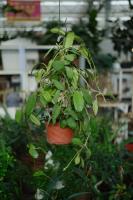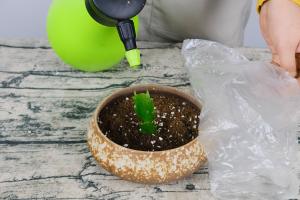When Are Fruit Trees Planted in Connecticut?
Fruit trees are a wonderful addition to any garden, providing fresh and delicious fruit for you and your family to enjoy. But if you live in Connecticut, you may be wondering when is the best time to plant fruit trees. In this article, we'll cover when to plant fruit trees in Connecticut, as well as some general tips to help you grow healthy and productive trees.
Best Time to Plant Fruit Trees in Connecticut
The best time to plant fruit trees in Connecticut is in the spring, after the last frost has passed. This is typically between mid-April and early May, depending on your location. Planting in the spring allows the trees to establish their roots before the summer heat arrives, which can stress the tree and make it more susceptible to disease and pests.
If you miss the spring planting window, you can still plant fruit trees in the fall. The ideal time is between mid-September and mid-October, as the temperatures are cooler and the soil is still warm enough for the roots to grow. Fall planting can also be advantageous, as many nurseries offer end-of-season discounts on their stock. However, planting in the fall does mean the tree will have less time to establish its roots before winter sets in.
Selecting the Right Tree
Before you plant your fruit trees, it's important to choose the right tree for your location and needs. Consider the size of your garden, the amount of sunlight it receives, and the type of fruit you want to grow. Some fruit trees, like apple and pear trees, require a pollinator tree to produce fruit, while others, like peach and cherry trees, do not. Make sure to research the specific needs of the type of fruit tree you want to plant before making your purchase.
Preparing the Soil
Before you plant your fruit trees, it's important to prepare the soil properly. This will help ensure that your trees have the nutrients they need to thrive. A few weeks before planting, remove any grass, weeds, or debris from the planting area. Dig a hole that is two to three times wider than the root ball of your tree, but no deeper than the depth of the root ball. Mix compost or other organic matter into the soil and fill the hole halfway.
Next, remove the tree from its container and carefully loosen any tangled roots. Place the tree in the hole, making sure that the roots are spread out and not twisted. Fill the hole with the remaining soil, tamping it down gently as you go. Water the tree thoroughly, and add a layer of mulch around the base to help retain moisture.
Care and Maintenance
Once your fruit trees are planted, it's important to care for them properly to ensure healthy growth and abundant fruit. Water your trees regularly, especially during the hot summer months. Fertilize them annually with a balanced fertilizer, and prune them in the winter to promote new growth and shape the tree. Keep an eye out for any pests or disease, and address them promptly to prevent further damage to your tree.
In conclusion, planting fruit trees in Connecticut is best done in the spring or fall, depending on your preferences and needs. Make sure to select a tree that is appropriate for your garden and location, prepare the soil properly, and provide regular care and maintenance. With these steps, you can enjoy a fruitful harvest for years to come.

 how many times do yo...
how many times do yo... how many planted tre...
how many planted tre... how many pine trees ...
how many pine trees ... how many pecan trees...
how many pecan trees... how many plants comp...
how many plants comp... how many plants can ...
how many plants can ... how many plants and ...
how many plants and ... how many pepper plan...
how many pepper plan...































